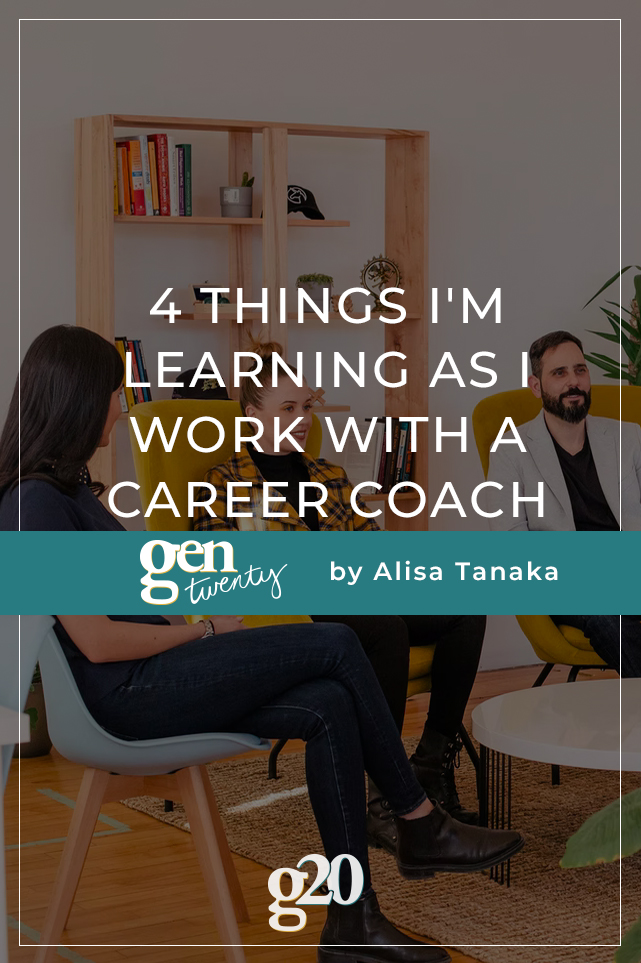[ad_1]
Everyone knows that the job hunt is a draining and demoralizing process, no matter how long your search is, and my search has been no exception. In my efforts to effectively transition fields, I thought it would be best to invest in a career coach, particularly in regard to interviews.
Perhaps this is a result of my Communications major and the time I spent studying marketing and psychology, but I am generally very cautious with my money. I only spending money on things that I need or things I know I will use for years to come.
I had a particularly bad experience when I purchased a program in the past for an amount that I normally wouldn’t consider spending. I had heard nothing but good things about the program, and I had thought the program would teach me skills I could carry with me for the rest of my life.
That experience has made me wary of dropping significant sums of money on programs, which is why I took the investment in a career coach so seriously. Although I only recently established my relationship with this coach a few months ago, I have learned a lot from this experience.
4 Things I’m Learning as I Work with a Career Coach
You Have a Right to How You Feel.
Regardless of what kind of service you are investing in, as a client, you have the right to certain expectations. In this case, I fully expected that this coach would at least read the 5+ pages of material I had submitted that outlined my decade-long career, the sort of position I was seeking, and the reasons behind my desire to change industries. I had submitted this material as a homework assignment of sorts, outlined by the agreement I had signed prior to beginning this process.
The way this coach chose to communicate with me for the next three sessions I had with him gave me the distinct impression that he had not read my paperwork, much less read it thoroughly. As you can imagine, I was upset. I understand that with these sorts of relationships, you get what you put in.
At the time of this writing, this coach has continued to communicate with me in a manner that I feel is sorely lacking in clarity. This has left a bad taste in my mouth.
It is important to remember that as a client, you are in a position of power. You have the right to your opinion and the right to express that opinion, whether it be a glowing review or extreme dissatisfaction.
Remain Vocal
When I say this, I don’t mean obtaining a bullhorn or sending an excessive number of emails. I mean voicing what you are comfortable with, what you are not, what you would and would not prefer. As a client, it is the responsibility of the people you are working with to adapt the service as much as possible to your needs in order to ensure that you walk away satisfied.
You Won’t Always Agree with the Suggestions You’re Given
In working with multiple people throughout the course of this experience, I have been given a lot of advice in regard to a lot of things: resume format, what to include, what to exclude…the list could go on.
Initially, the resume writers I worked with sent me back my resume and I will be honest: I wasn’t happy. I wasn’t happy because they had modified my resume so much that I felt strongly that they had misrepresented me and my abilities. I had to have several back and forth email exchanges with these individuals as they learned what I was comfortable writing, and what I wasn’t.
You won’t be comfortable with absolutely everything that comes out of someone’s mouth, and that’s fine. People will suggest things to you based on their own experiences; you don’t have to take everything into account and take every suggestion given to you.

You Won’t Get Value out of Everything
When I first started this program by scheduling career coaching sessions, the coach who was in charge of my case utilized the 30-minute time frame to tell me things that I already understood (i.e.: the importance of networking) rather than focusing on what I had anticipated he would, which was focusing on techniques that I could utilize moving forward in the job hunt. As you can imagine, I wasn’t thrilled, especially considering the short amount of time I knew I was allotted for these sessions.
Whereas, another part of the program, a mock interview, was much more valuable for me. I was able to discuss my past interview experiences with another individual on the staff, and they gave me tangible techniques that I could utilize to navigate an interview: they pointed out strengths that I had as an interviewee, as well as what my weaknesses were. Not only were they able to point out my weaknesses, but they were also able to offer alternatives to those weaknesses as well.
Experiencing two components of this program that yielded completely different results for me showed me that I wouldn’t get value out of every aspect of a program or venture. Some people may have gotten more value out of the 30-minute coaching sessions about networking; conversely, I got more value out of the mock interview session.
What someone finds valuable will differ from person to person. It’s not realistic to think that you will find value in absolutely every aspect of a program. Hold onto the value you find and take what works for you.
Investing in an expensive program or service can be intimidating. The organization’s marketing can leave you with high expectations; however, as a customer, you should expect the best out of the services advertised, especially if you are paying a significant sum.
About the Author
[ad_2]
gentwenty.com







